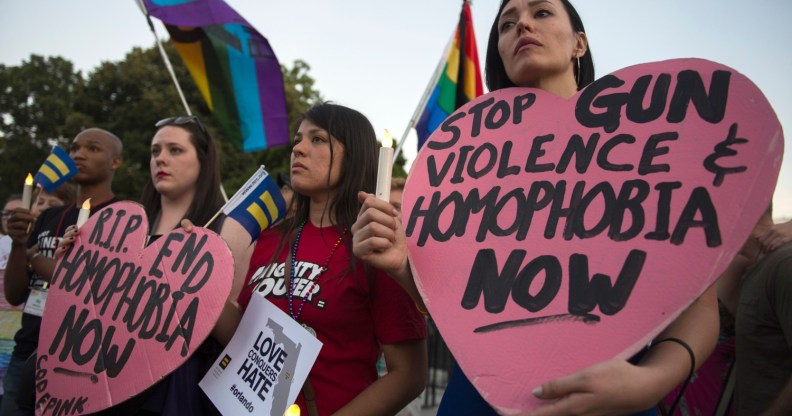Gay man subjected to vile homophobic abuse after being physically assaulted

A gay man has revealed how he is still subjected to homophobic abuse years after a hateful physical assault.
Robbie de Santos spoke to ES about an attack which has left him too afraid to use public transport or show public affection with his boyfriend years later.

The charity worker spoke about his experience with abuse as part of National Hate Crime Awareness Week.
Santos was punched in the head, called a “p**f” and thrown out the doors of a night bus by another commuter.
“I got on a 29 bus at Tottenham Court Road at quarter to three in the morning. It was a busy night bus and this guy just started pushing me and said ‘you p**f, what you looking at? Why you here?’” said de Santos.
“Before I knew it, I was punched in the side of my head, in my mouth, I was thrown out the double doors of the bus onto the street. I still feel the stitches on the inside of my lip, and I will live with those stitches every day of my life, knowing what I’ve been through.”
The homophobic attack left him covered in blood, but the incident wasn’t isolated. The Londoner still experiences homophobia on a daily basis.
“We know that many people still experience hate crime I still, even in my own neighbourhood, I’ll be walking with my boyfriend and someone will say ‘p**f’”
The charity worker has been affected by the incident since, and is wary of using public transport.
“I know that’s the experience for quite a few of my friends who are LGBT and hear this in daily life. I definitely shouldn’t think it’s made me more self conscious. I probably wouldn’t hold hand with my boyfriend in public and we’ve been together 12 years, so that’s probably quite unusual for many couples that’ve been together that long.”
“It does affect the way I live my life now, even as a confident 31-year-old adult, it’s really stayed with me. I now cycle everywhere in London and I actually feel much safer as a cyclist – even next to big lorries and buses – than I do on public transport.”
“Victims of hate crime need to be given the confidence and reassurance that they should pursue those cases – at the time I was 19, I was scared, and thought ‘fine, it’s better if it’s over with’.”

